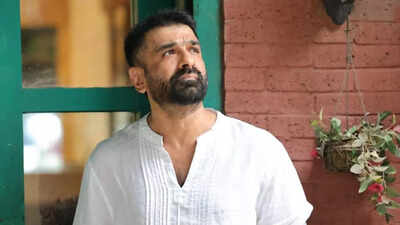ARTICLE AD BOX

Eijaz Khan, best known for his intense performances in projects like City of Dreams, Adhrishyam, Dhoom Dhaam, and Shah Rukh Khan’s Jawan, recently opened up about something far more personal than a role or a script — his profound and emotional relationship with music.
What unfolds is not just a love for melody, but a quiet testimony to the healing power of sound.On the topic of the current wave of remixed classics flooding Bollywood, Eijaz is refreshingly honest. “I have mixed feelings about it. There’s a very fine line,” he says. He isn’t against experimentation, but what bothers him is the dilution of emotional memory. “As long as the original song is respected and its essence isn’t lost, it’s okay,” he explains.
But too often, the remixes feel like “noise,” stripping away nostalgia and repackaging emotionless versions for quick consumption.
“It feels like those memories are being erased and repackaged like junk food,” he says, with a clarity that reveals his deep respect for original artistry.Asked which musician moved him the most, Eijaz doesn’t hesitate. “George Michael,” he answers. “His voice doesn’t try to be vulnerable — it just is.
It scratches you, it makes you bleed, it shakes you.” For him, albums like Listen Without Prejudice and Older resonate on a visceral level, mirroring his own inner struggles. The pain, isolation, and silent battles in Michael’s music echo chapters from his own life. “Those albums aren’t just music to me — they’ve become lifelines.
”Recounting a powerful moment from a Guns N’ Roses concert, Eijaz reveals, “When they started playing my favorite hits, I didn’t scream or sing along.
I just froze and started crying.” In that moment, he felt a convergence of his past and present selves. “I was that young boy, Eijaz Khan, who didn’t understand so many things but had Guns N’ Roses as a companion.” That concert was not just an experience — it was a memory stitched back together, a form of emotional closure.Naming his favorite song is easy: Older by George Michael. “That song isn’t preachy — it feels like a quiet, honest conversation you have with yourself,” he reflects.
With every passing year, its meaning grows deeper. “Every line, every word feels like a page pulled straight out of my own emotional diary.”Music, for Eijaz, goes beyond entertainment or inspiration. “It transforms you. It helps you evolve. Sometimes it gives your deepest pain a voice,” he says. It hasn’t fixed him — but it has comforted him through despair. “You understand music differently when you’re broken,” he says poignantly.
“And I think during my loneliest phases, music understood me even when I didn’t understand myself.”From silence to song, from solitude to self-awareness, Eijaz Khan’s emotional world is intimately tied to the music that shaped him. “Sometimes it’s healed me. Sometimes it’s haunted me. But always, it’s comforted me.” And in those melodies and lyrics, we see not just the actor, but the man — real, raw, and remarkably resonant.



.png)
.png)
.png)
















 3 hours ago
5
3 hours ago
5









 English (US) ·
English (US) ·